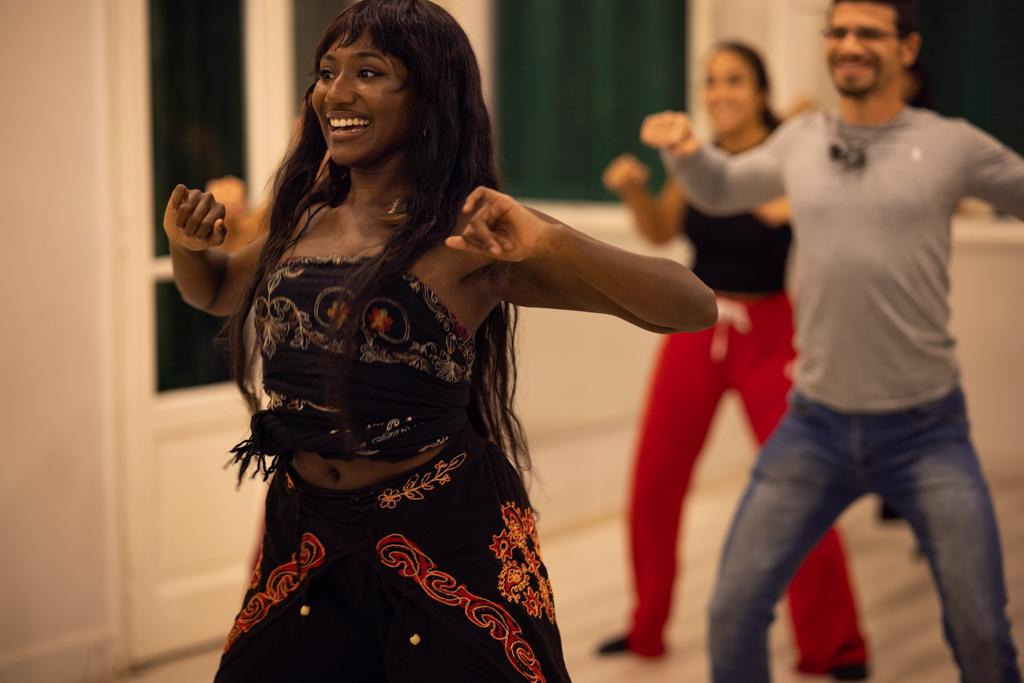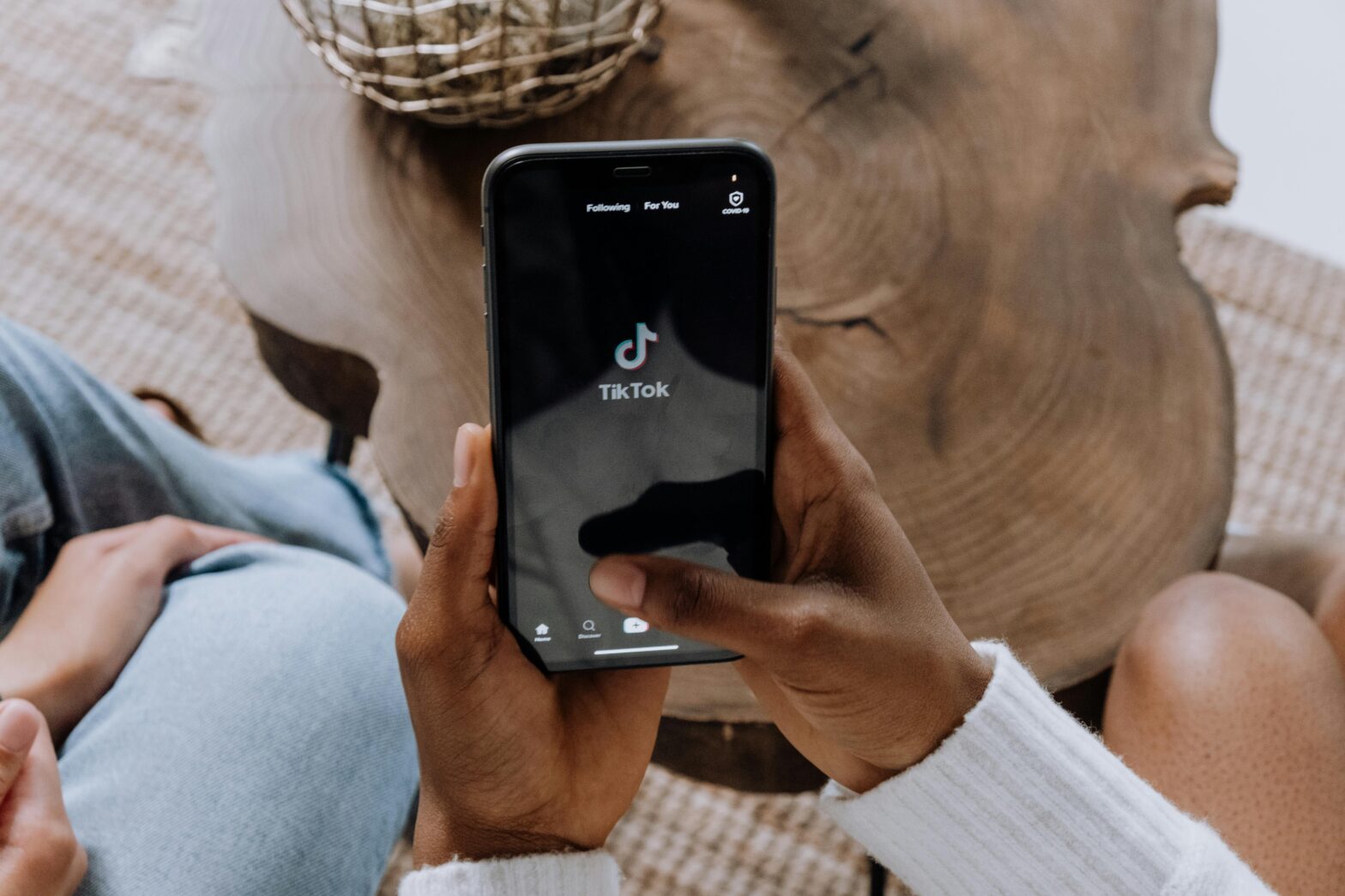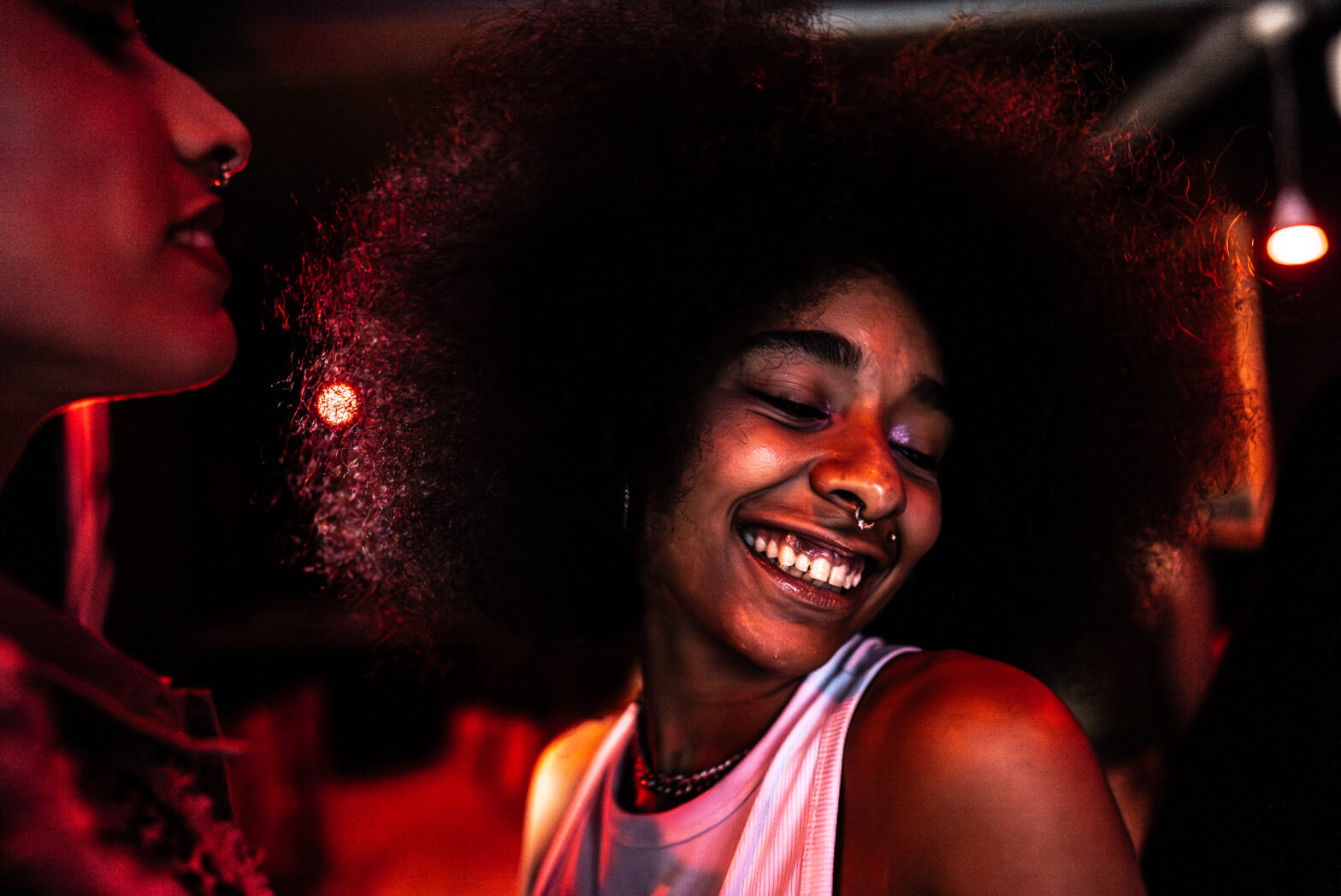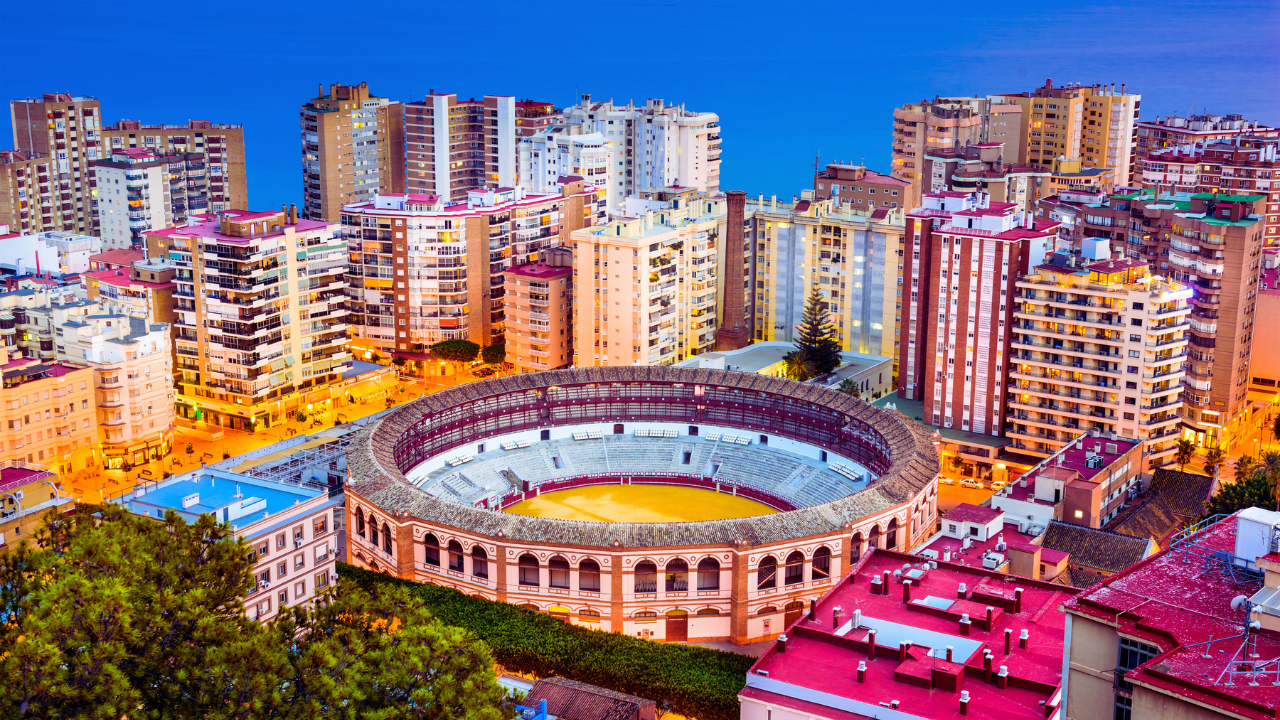Chipo’s reconnection to dance has seen her travel solo from New Orleans across the globe, encouraging healing and movement for Black femmes and those from the African diaspora. In this Travel Noire interview, she shares the importance of feeling free in your body and the influence of the Funk genre and the divine femininity in her dance sessions.
Travel Noire: How would you describe what you do?
Chipo: The simplest way I can put it is I’m a Dancer, a live Performing Artists and Filmmaker. More specifically I am a Dance Ethnographer. I am as much a Historian as a Musicologist, I studied dance in relation to culture and how people live throughout the diaspora and more generally throughout the world.
TN: What does that look like in your travels?
Chipo: Primarily, I teach ‘Sacral Shock’ which is a healing dance session. I cater to people who identify with any gender wanting to connect with their divine feminine energy, and I help them open their sacral chakra by becoming comfortable in their bodies. I teach this dance session online and in person throughout my travels. I’m a live performing artist while I’m on the road too, and I am the owner and founder of Femme Funk, which is a platform that is dedicated to uplifting black women in the Funk genre who are often unsung.
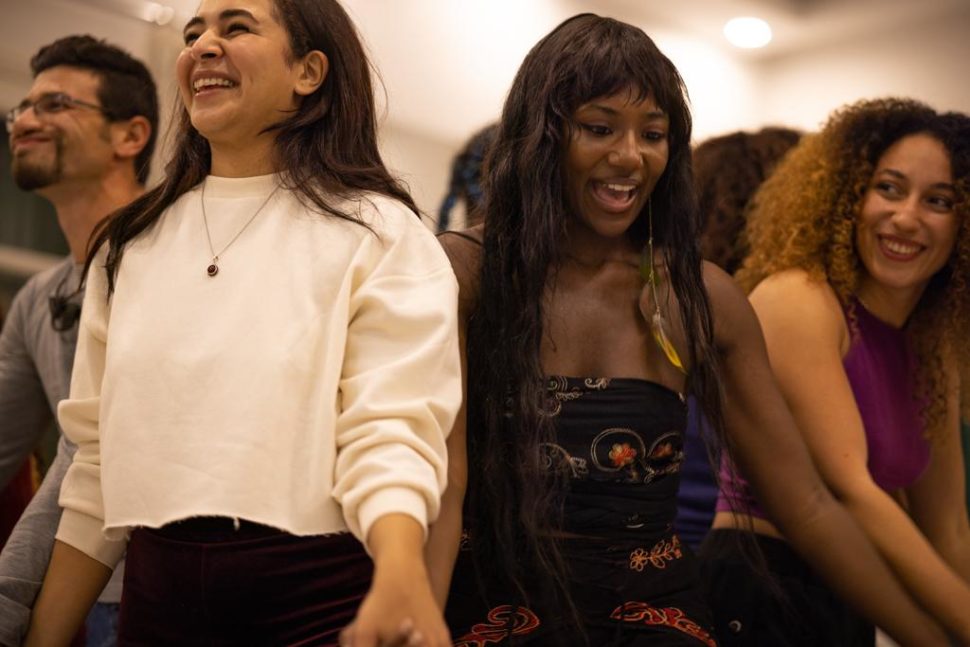
TN: Who would you say are the femmes who initially influenced you to launch and document Femme Funk?
Chipo: Growing up, I’ve always had a strong love and appreciation for Funk. Seeing the Mickalene Thomas ‘Femmes Noires’ exhibition inspired me to actualize it. But what really propelled me to document and to put this out there was hearing and knowing the stories of women that were not fully given their dues. To name a few inspirations: Mallia Franklin, Betty Davis and Jackie Shane.
TN: What prompted you to help Black femmes journey toward divine femininity?
Chipo: I’m a renaissance woman and my purpose in all my different mediums/gifts is to “to bring healing”, in whichever form, specifically to femmes and people of the African diaspora. Due to slavery, there’s so much evident trauma, historically and not just within American culture. Then there are issues with identity, sexual trauma and all of these things that I look to heal not only for myself in my own lineage, but for everybody that I come across who is open to receiving.
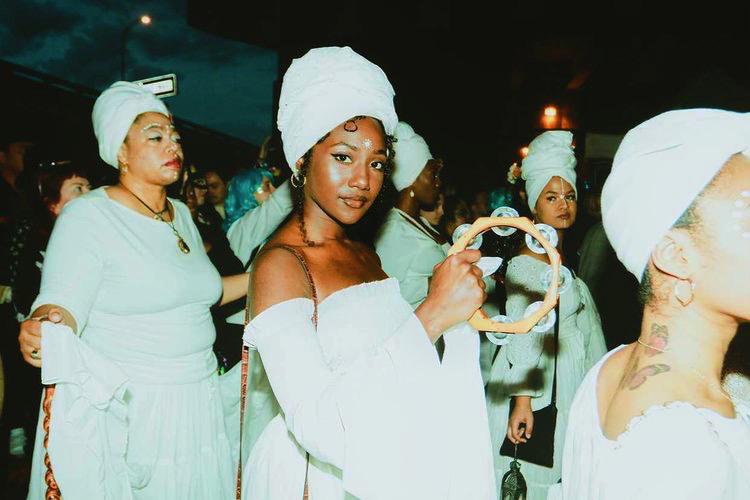
In terms of divine femininity, I would say it happened after noticing that people are often not comfortable in their bodies, even just dancing in a very casual way. As someone who relearned how to be comfortable in my body, I was inspired to start this work. The ‘Femmes Noires’ exhibition was very inspiring and in perfect alignment with what I was going through personally, healing the relationship with my mom and healing generational sexual traumas. The fact that an exhibition celebrated unsung or simply amazing Black women in pop culture in a very patriarchal, white space (the art world) was very powerful. It made me see that I could do this too.
TN: Does your filmmaking do a similar work as your healing dance sessions?
Chipo: Before I wanted to be a filmmaker, I wanted to be an Anthropologist. But I switched over into making film my main focus in school because I realized 1. That I had extreme passion and talent for storytelling, and 2. I could still be an anthropologist, but in a way that made more sense to my experience. The area of film that I’m exploring right now is documentary style, and it gives me the ability to be expressive in my research. Most anthropologists, are objective, people from the outside coming in. My work is from a subjective view because this actually has to do with my life.
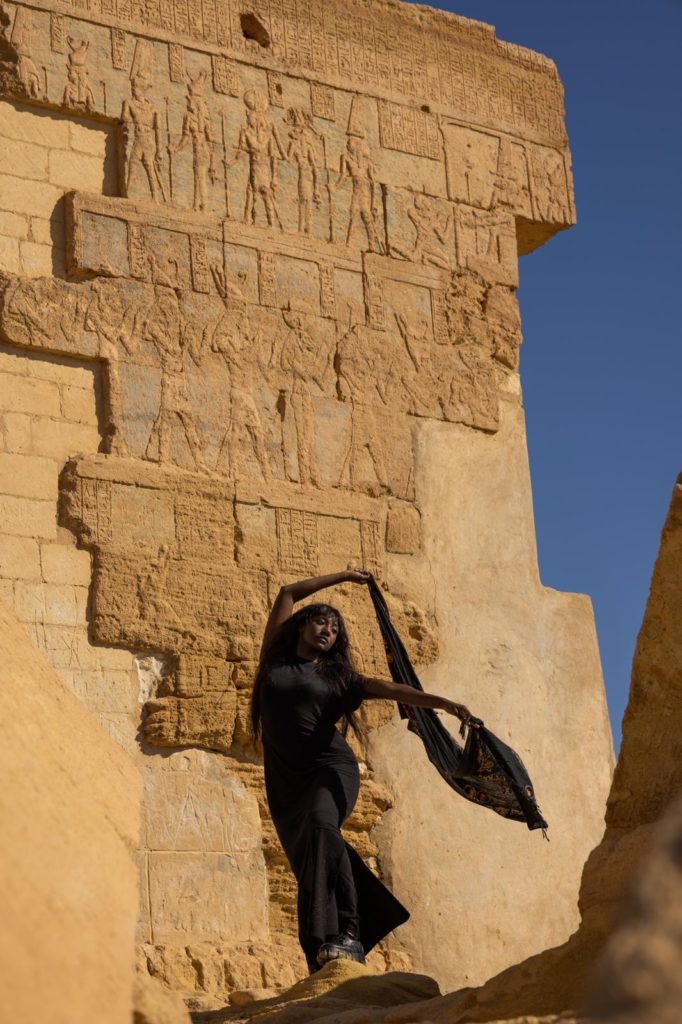
TN: Could you talk us through what your experience is between the countries you’ve visited?
Chipo: This whole journey started when I first traveled out of the country to the Dominican Republic. The connections between dance styles that I had always been making in my head came to life on this trip. I lived there for about half a year spending a lot of time in the streets, being a hood rat [laughing] and immersing myself in the culture and dance styles like Bachata, Merengue and Dembow.
After that, I was invited to Cuba as part of the New Orleans Mayor’s delegation. While I was staying there, I was regularly taking Salsa and Rumba lessons with a family friend. I didn’t actually go to a lot of clubs in Cuba to experience the dance culture, I more so experienced low-key parties with dark-skinned Cubans who were mostly listening to Reggae, Cuban Dancehall and Afrobeats which was a special experience!
After that, Mexico was my next stop. Before I went to Mexico, I had been making connections between Mexican Cumbia and Indigenous dances across North America and, more specifically, in New Orleans for years. For instance, a lot of it is based in the feet and is forward-moving. I had never seen anyone write about this academically, and Mexico made me realize that I had to be the one to do it, to unify black dance traditions.
My most recent country has been Egypt. I’m here as part of the Alkemist residency which makes more sense than anything else because Egypt is one of the earliest civilizations and is the root of a lot of things.
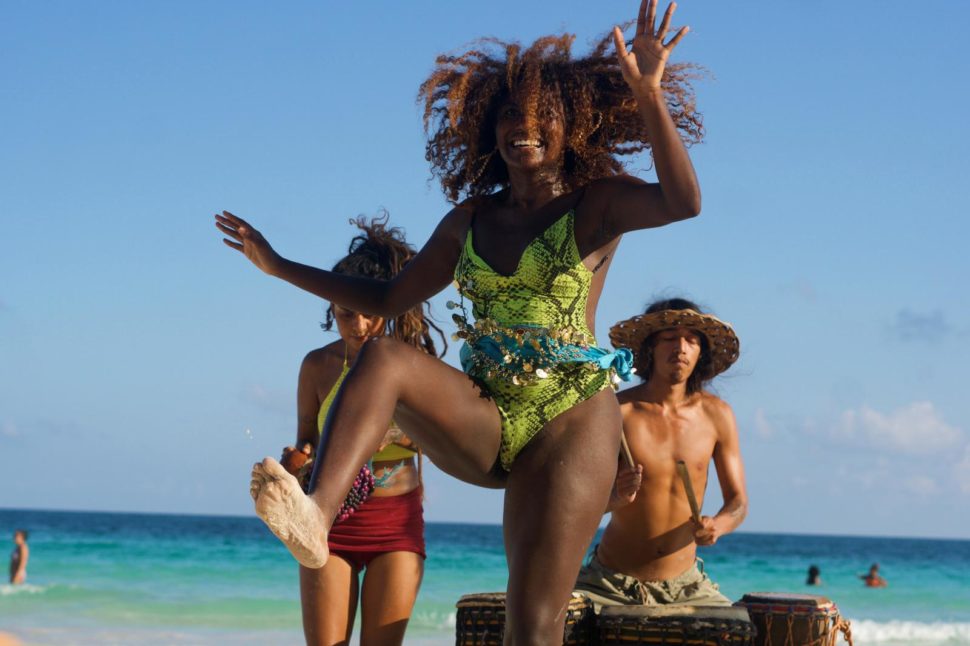
TN: What observations have you made so far while being in Egypt?
Chipo: Funk music is quite literally Afrofuturism. Anything from Earth, Wind and Fire to Sun Ra to Funkadelic has been deeply rooted in Kemet – the Black land. After teaching my first Sacral Shock here in Egypt, I could see the spiritual and research elements of my work from a different angle. In the session, I actually experienced something I was never expecting to experience here in Egypt. I’ve taught Sacral Shock in a lot of different places with a lot of different types of people, but I’ve never taught people at such a level of disconnection from their bodies. It was really hard for me to witness. These are amazing performers who came to my session – pole dancers, aerialists, belly dancers, you name it, but it was really hard for them to get into these movements that are more personal than they are about performing.
TN: How else has this residency affected or even supported you personally?
Chipo: Being invited alongside other movement artists from all over the world and who are mostly from the African diaspora has made it a spiritual journey of returning, in so many ways. I’m so thankful to my friend Talisman for bringing us all together because it’s quite revolutionary. We’ve really been through the process together from start to end. We raised funds together (and still are) so that we could all come to Egypt to collaborate.
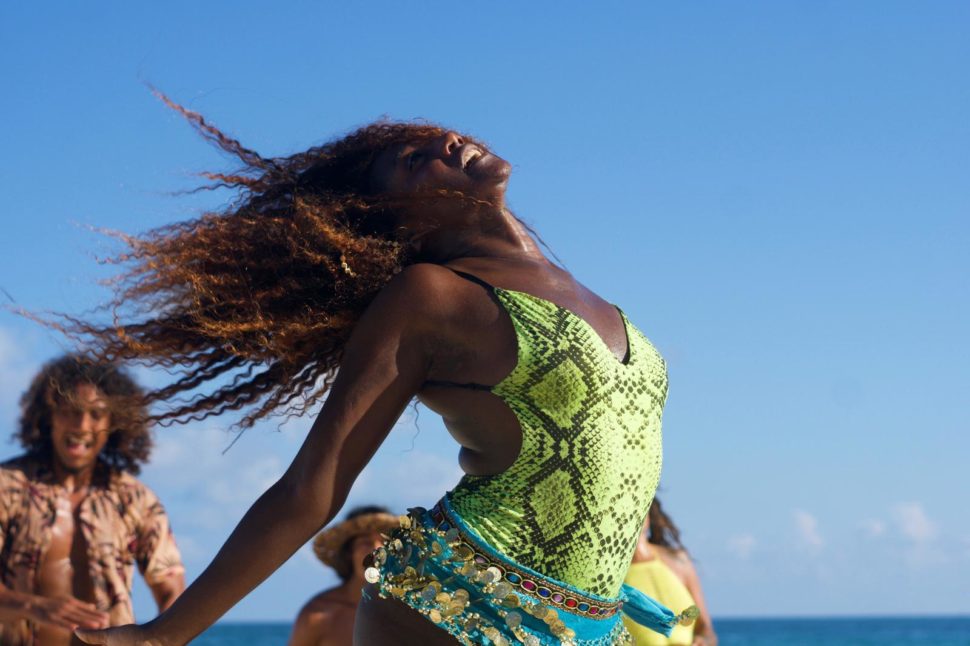
TN: Which country has made you feel the most free?
Chipo: Mexico. Absolutely, specifically the south – it’s super free, very Caribbean and very hippie. They are so connected to their Indigenous, African roots and more specifically Guinean ancestry. I appreciate this energy because as a Black femme there can sometimes be a lot of danger and a lot of subjecting self to really bad treatments that I have to think about. When travelling in Mexico, especially in places like Quintana Roo or Chiapas, or even the Oaxacan coast, that completely shifts – you are loved and even in some cases kind of praised for being Black and that was very new for me.
Follow Chipo’s solo travel and healing dance journey on Instagram.
This interview has been condensed for brevity.
